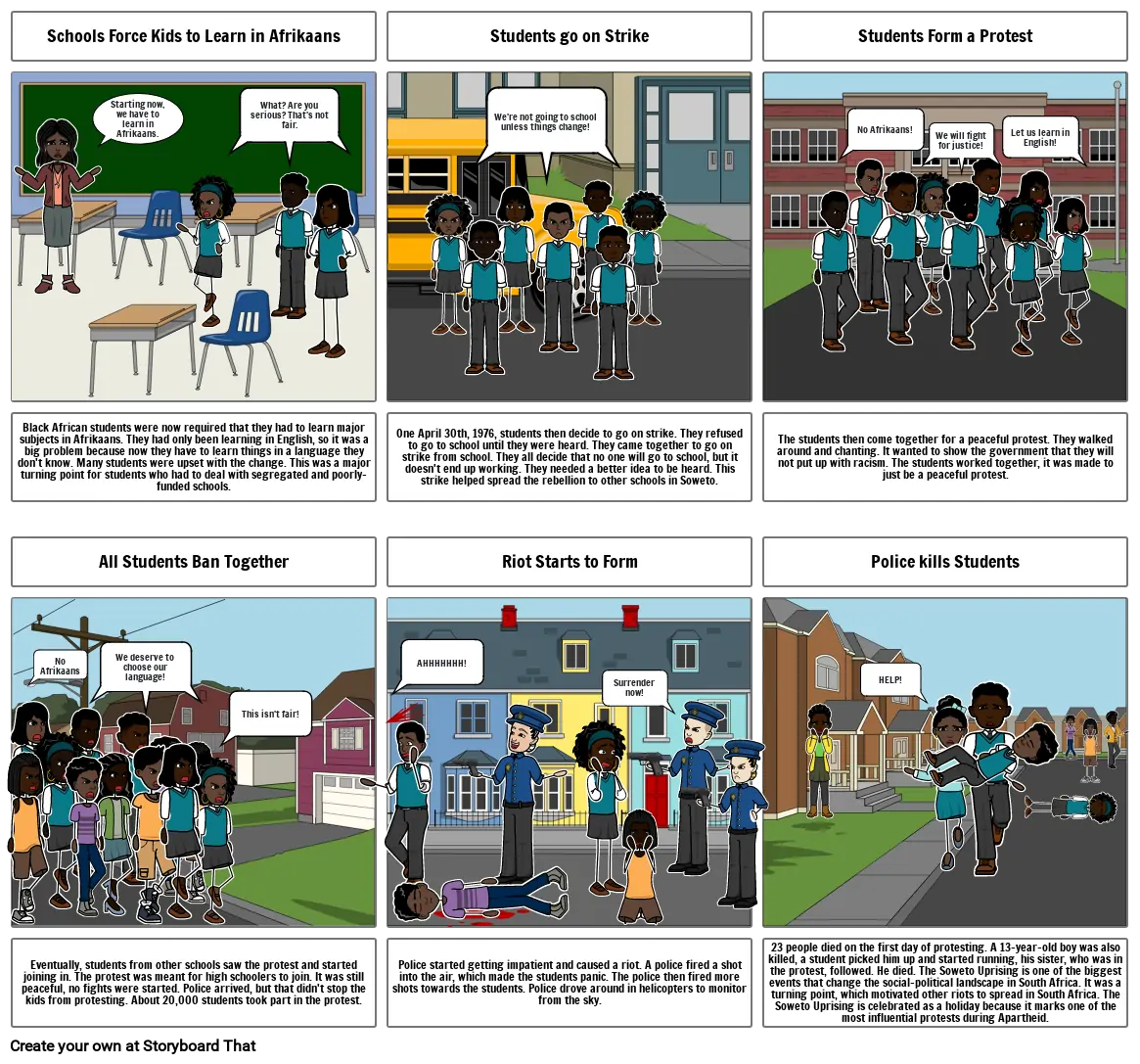Unknown Story

Storyboard Text
- Schools Force Kids to Learn in Afrikaans
- Starting now, we have to learn in Afrikaans.
- What? Are you serious? That's not fair.
- Students go on Strike
- We're not going to school unless things change!
- Students Form a Protest
- No Afrikaans!
- We will fight for justice!
- Let us learn in English!
- Black African students were now required that they had to learn major subjects in Afrikaans. They had only been learning in English, so it was a big problem because now they have to learn things in a language they don't know. Many students were upset with the change. This was a major turning point for students who had to deal with segregated and poorly-funded schools.
- All Students Ban Together
- No Afrikaans
- We deserve to choose our language!
- One April 30th, 1976, students then decide to go on strike. They refused to go to school until they were heard. They came together to go on strike from school. They all decide that no one will go to school, but it doesn't end up working. They needed a better idea to be heard. This strike helped spread the rebellion to other schools in Soweto.
- Riot Starts to Form
- AHHHHHHH!
- Surrender now!
- The students then come together for a peaceful protest. They walked around and chanting. It wanted to show the government that they will not put up with racism. The students worked together, it was made to just be a peaceful protest.
- Police kills Students
- HELP!
- Eventually, students from other schools saw the protest and started joining in. The protest was meant for high schoolers to join. It was still peaceful, no fights were started. Police arrived, but that didn't stop the kids from protesting. About 20,000 students took part in the protest.
- This isn't fair!
- Police started getting impatient and caused a riot. A police fired a shot into the air, which made the students panic. The police then fired more shots towards the students. Police drove around in helicopters to monitor from the sky.
- 23 people died on the first day of protesting. A 13-year-old boy was also killed, a student picked him up and started running, his sister, who was in the protest, followed. He died. The Soweto Uprising is one of the biggest events that change the social-political landscape in South Africa. It was a turning point, which motivated other riots to spread in South Africa. The Soweto Uprising is celebrated as a holiday because it marks one of the most influential protests during Apartheid.
Over 30 Million Storyboards Created
No Downloads, No Credit Card, and No Login Needed to Try!
